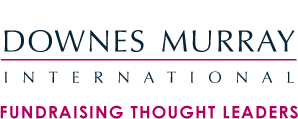
Much of the fundraising advice that is published for non-profit organisations is aimed at the larger, more established organisations with fairly sophisticated fundraising programmes.
So I thought it was time to offer some words of encouragement to the smaller organisations and those just starting out on a fundraising development programme. In other words, those nonprofits doing no less valuable work than the high-profile ones, but whose struggle for funding is much greater, and often needs a somewhat different approach.
I’m sure many of you have experienced the situation when you first face the task of fundraising – the director and your board are pushing you for results: everyone is suggesting different methods of achieving them, and expecting you to start out in 20 directions.
The first and most important bit of advice is – don’t allow yourself to be rushed or pushed into an unplanned programme. Never rush off without proper preparation. If you fail to follow each step of the development process you run the risk of total failure down the line.
So make sure that your organisation knows its mission. Develop a proper case statement. Invest in feasibility studies, donor surveys, and discussions. Take time to train voluntary leaders and workers. Attention to these and other planning and preparation details will help you avoid pitfalls and potholes!
Build your fundraising programme one step at a time, starting with the annual giving programme. Special events may well have a place in your fundraising, but they don’t build an on-going relationship or long-term giving habits from your organisation’s constituency.
Essential Starting Point
A properly organised direct mail programme for budget funding that allows everyone in your support group the opportunity of giving at least once a year is the essential starting point to building the necessary relationship with donors.
Use newsletters to inform your donors about your needs and how they can help. In your newsletters and your printed literature talk about bequests and their importance to the long-term continuation of your work.
And above all, make sure that you are building towards a programme which gives as many people as possible the opportunity to contribute – from the widow’s mite to the mighty millionaire’s millions. While we’re on planning – develop long- and short-range plans. A long-range plan which you can review and update with your organisation’s board or committee will help you focus on the ultimate development programme you’ve set yourself, and will prevent you from getting so impatient that you rush ahead with too many activities all at once.
As the fundraiser your task is not to do the day-to-day fundraising. You must concentrate on co-ordinating the programme whilst the right volunteers with the right amount of “TFI” (top financial influence) do the actual solicitation. You need to make sure that you have the right balance between existing donor renewal programmes and new donor acquisition.
If you put all your efforts into a programme that concentrates only on existing donors – you may well produce maximum income for a while – but you’d be ignoring the future. So keep the balance and be sure that your annual plan includes new donor solicitation. Use your special events to build lists of potential supporters who can be recruited to become regular donors in the mail.
A word of warning. Don’t get so enthusiastic about your own ability that you involve your organisation in projects that it cannot hope to sustain. If you lead the organisation into an activity they’re not ready for or don’t have the finances or facilities to support – think about what can happen to them if suddenly one day you are no longer there to hold it all together.
Finally don’t be afraid to ask for advice. Ask a colleague in nonprofit work, ask a volunteer businessman to take a look at your operation and give you an outside perspective, or ask for professional fundraising specialist’s advice on a “payment for time” basis. A half-day or a full-day consultation can provide an in-depth look at your organisation, and your development programmes, from someone with the experience of a great many different nonprofit organisations.
With acknowledgement to the late Terry Murray.
Like most modern websites, www.dmi.co.za places small files called 'cookies' on your computer to make your browsing experience as pleasant as possible. By entering this site you accept our Privacy Policy and Cookies Notice
If you’d prefer us not to use cookies, then please turn them off.
Close window and proceed to www.dmi.co.za